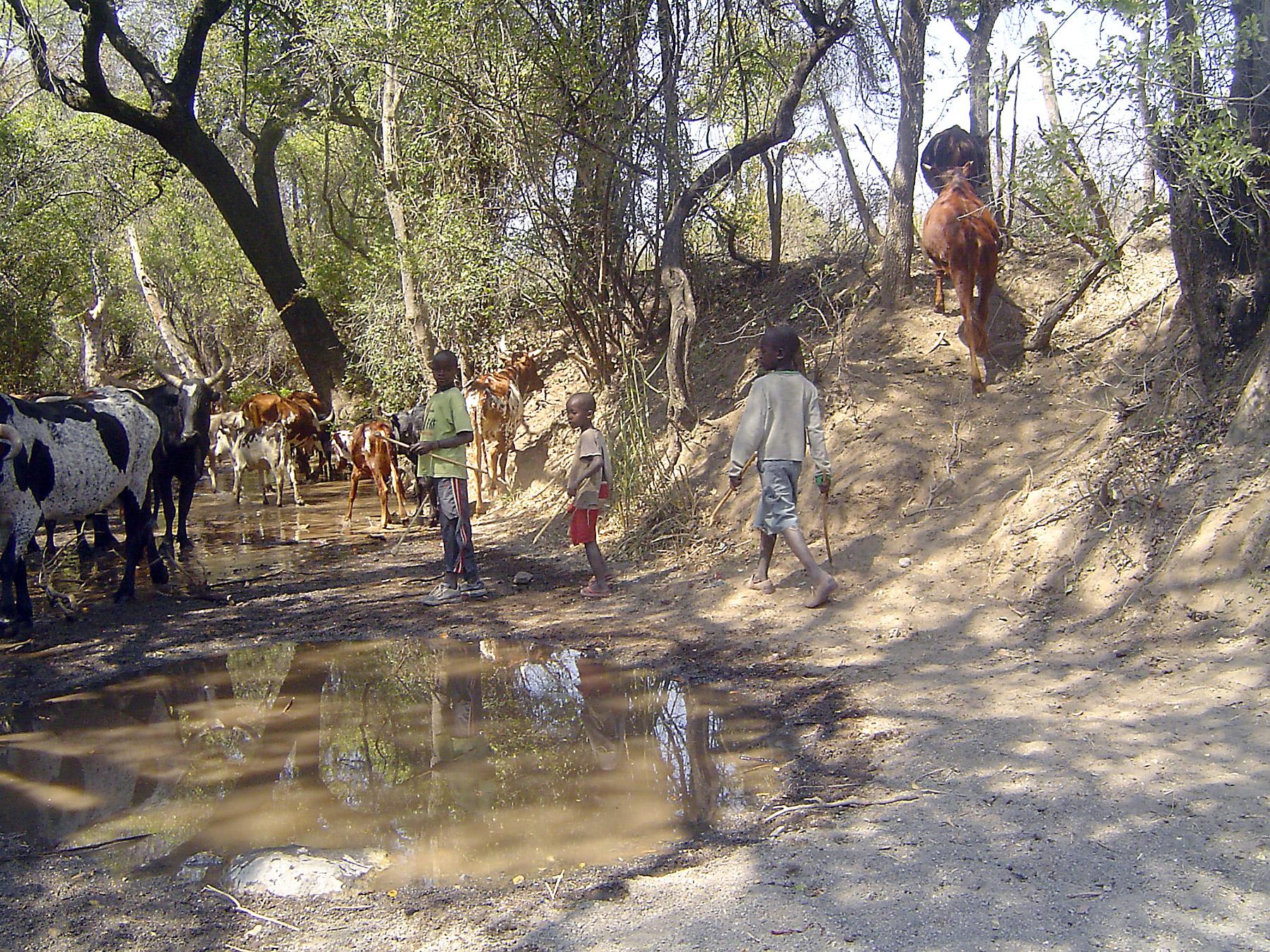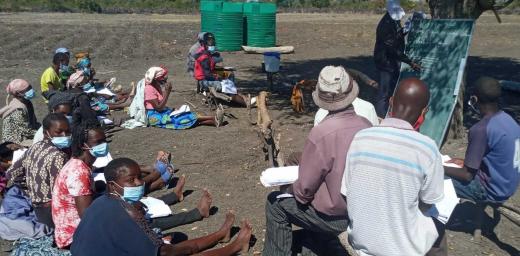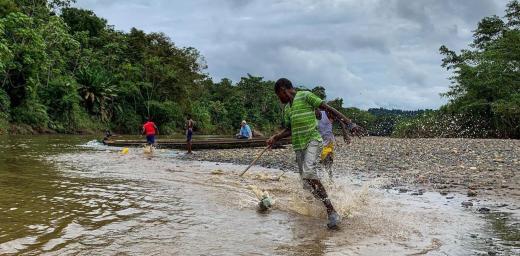Hygiene and Sanitation to Contain Cholera Spread in Drought-Hit Angola

Children taking animals to drinking water points in Gambos Huila province, Angola. Photo: LWF/Abrao Mushivi
LWF Intervention Prevents Emergency from Deteriorating into Disaster
(LWI) - In the southern Angolan provinces of Cunene and Huila, more than 600,000 people face severe food and water shortages, including a lack of pastures for animals, as the result of prolonged dry spells. Recent rainfall combined with the after effects of drought has resulted in new outbreaks of cholera in the region, which risk causing significant loss of life.
More than 1,000 cholera cases and 48 deaths were recorded during late November in Cunene province due to an outbreak of the disease. A small number of cholera cases were also confirmed in neighboring Huila. With heavy rains now falling, it is feared infection will spread more rapidly due to poor sanitation, lack of portable water and dead animals contaminating running water supplies.
In response, The Lutheran World Federation (LWF) and its partners in the ACT Forum are promoting improved practices for water storage, hygiene and sanitation through awareness education. The LWF is also calling on the government for transportation and distribution of water for drinking, cooking and domestic use, and also the use of tanks in the future for water harvesting.
In February 2006, a year-long cholera outbreak that started in the Angolan capital, Luanda, and spread to 16 out of 18 provinces, resulted in over 80,000 reported cases and 3,000 deaths.
An ongoing response to a drought appeal by the LWF and its partners in the Angola ACT Forum has already brought relief to thousands of vulnerable people, who are currently receiving basic food stuffs. The distribution will continue until March or April when some harvest is expected. Recent rainfall has been sufficient to start planting but will not be enough to offset the chronic food shortage in the region. Heavy rain has also increased the threat of flooding and reduced access to vulnerable communities.
The LWF took part in a joint ACT Forum field trip in November to witness first-hand the distribution of food supplies in Cunene and Huila. With its partners, LWF is acting to prevent the slow-onset emergency deteriorating into a disaster. Drought has destroyed thousands of hectares of crops and livestock pastures in the hardest hit areas of the two provinces
Urgent support is needed for people to survive through the hunger months. Many elderly internally displaced persons (IDPs) are completely reliant on food distribution for their survival, because younger people have flocked to the cities in search of work and in order to support their families.
“My heart has settled down,” an elderly woman said after receiving her monthly food ration.
Acute malnutrition rates as high as 25 percent in areas experiencing food shortages due to the drought have left children highly susceptible to waterborne illnesses such as cholera.
Although cholera is easily treatable with rehydration salts, if untreated it can result in death in 24 hours, according to the World Health Organization. Although the risk rating for cholera in Angola is currently moderate, three municipalities in Cunene province—Cahama, Ombanja and Curoca—registered a total of 13,223 cholera cases in 2013.





